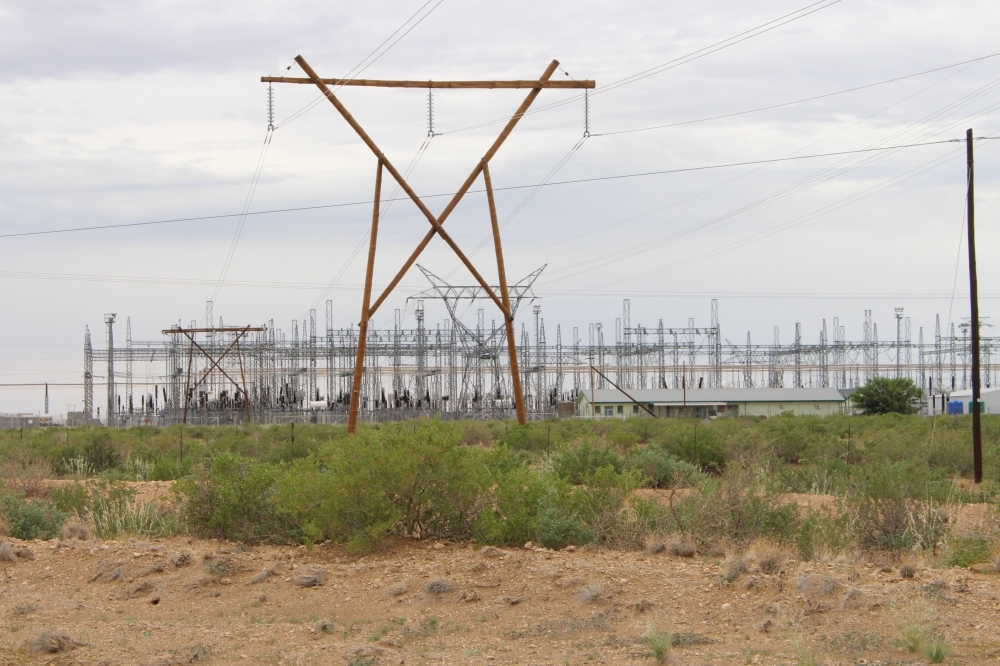NamPower, NamWater warn against debt write-offs
Bulk utility service providers NamWater and NamPower say suggestions for them to write off debts owed by local authorities do not make business sense and could leave them unable to provide services.
NamWater CEO Abraham Nehemia said writing off debt would leave it without money to carry out its operations. He suggested that government instead take responsibility for the debt and ring-fence it.
NamWater is owed about N$1 billion by local authorities.
“It does not make business sense for debt to be written off. We have made a submission that government ring-fence the debt and pay it off over four or five years,” he said.
“NamWater has to recover costs for it to provide services. Where will the company get money to provide services if it cancels debt? For me, it does not make business sense.”
NamPower managing director Kahenge Haulofu voiced similar concerns, saying: “To write off debts for local authorities that are in arears will set a precedent for others not to honour their responsibility of paying for their debts, as they will expect NamPower to continue the trend of writing off debts”.
The proposed debt write-offs would leave it with limited capacity to carry out new projects, he added.
“This will affect our cash flow and subsequently impact the implementation of planned projects, thus ultimately impacting NamPower’s sustainability, and which may result in major electricity supply disruptions in the country.”
Debt a thorn in the flesh
Landless People’s Movement (LPM) parliamentarian Henny Seibeb recently raised a motion to have NamWater and NamPower write off money owed to them by local authorities.
He said the inability of municipalities to honour debt payments has been a thorn in the flesh of local government administration and continued the commodification of natural resources, such as water, in a new form of impoverishment of the commons.
“The motion seeks to address strategies to permanently write off all water debts of the commons, more especially senior citizens, [the] destitute/poverty-stricken [and] unemployed residents,” he said.
NamWater had earlier this year requested government to help settle the bills of entities who had been provided free water following the roll-out of the Covid-19 state of emergency in 2020.
NamWater CEO Abraham Nehemia said writing off debt would leave it without money to carry out its operations. He suggested that government instead take responsibility for the debt and ring-fence it.
NamWater is owed about N$1 billion by local authorities.
“It does not make business sense for debt to be written off. We have made a submission that government ring-fence the debt and pay it off over four or five years,” he said.
“NamWater has to recover costs for it to provide services. Where will the company get money to provide services if it cancels debt? For me, it does not make business sense.”
NamPower managing director Kahenge Haulofu voiced similar concerns, saying: “To write off debts for local authorities that are in arears will set a precedent for others not to honour their responsibility of paying for their debts, as they will expect NamPower to continue the trend of writing off debts”.
The proposed debt write-offs would leave it with limited capacity to carry out new projects, he added.
“This will affect our cash flow and subsequently impact the implementation of planned projects, thus ultimately impacting NamPower’s sustainability, and which may result in major electricity supply disruptions in the country.”
Debt a thorn in the flesh
Landless People’s Movement (LPM) parliamentarian Henny Seibeb recently raised a motion to have NamWater and NamPower write off money owed to them by local authorities.
He said the inability of municipalities to honour debt payments has been a thorn in the flesh of local government administration and continued the commodification of natural resources, such as water, in a new form of impoverishment of the commons.
“The motion seeks to address strategies to permanently write off all water debts of the commons, more especially senior citizens, [the] destitute/poverty-stricken [and] unemployed residents,” he said.
NamWater had earlier this year requested government to help settle the bills of entities who had been provided free water following the roll-out of the Covid-19 state of emergency in 2020.





Comments
Harry Tjihukununa
Write-off debt and at the same time you are expected to operate like a business and not expect to be subsidised!